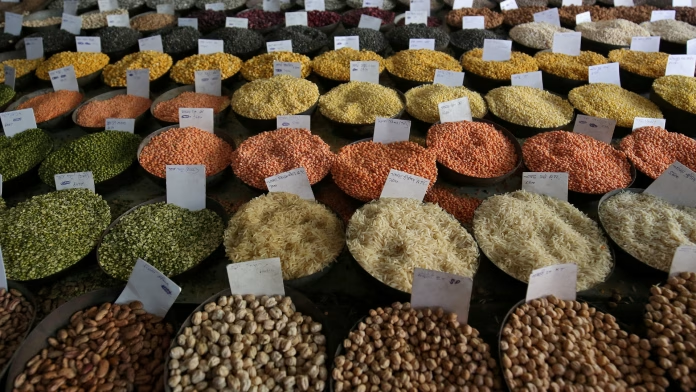India is actively exploring the option of establishing a mutual recognition system for food certification in collaboration with Canada, as per sources familiar with the matter. The primary objective of this endeavor is to facilitate the smooth import and export of edibles, with a particular focus on the growing Indian diaspora in the North American country.
During the previous month, a delegation from India, led by representatives from the Food Safety and Standards Authority of India (FSSAI), the apex food regulator in the country, participated in the 47th session of the Codex Committee on Food Labelling held in Québec, Canada.
To advance this initiative, the delegation held discussions with the Indian High Commissioner to Canada, Sanjay Kumar Verma.
“…a discussion took place on wide issues ranging from harmonisation with the Codex standards to import and export of food items, with an emphasis on the export of traditional food products, keeping in mind the sizeable and growing Indian population in Canada,” FSSAI said in a statement on May 25.
“He [high commissioner] is likely to meet the President of CFIA [Canadian Food Inspection Agency] soon to discuss about the mutual recognition of food certification system to improve the export of Indian Food products to Canada… also emphasised on the mutual recognition of few of the Food Testing Laboratories in India and Canada for facilitating trade of food products,” it added.
Formed in 1963, the Codex Alimentarius Commission (CAC) serves as an international food standards organization jointly established by the United Nations’ Food and Agriculture Organization (FAO) and the World Health Organization (WHO). It operates with the mission of safeguarding consumer health and promoting equitable practices in global food trade.
The fundamental documents of the Codex Alimentarius generally address various aspects such as hygienic practices, labelling requirements, contaminant limits, additive usage, inspection and certification procedures, nutritional considerations, and residue levels of veterinary drugs and pesticides. These guidelines have broad applicability across different products and categories within the food industry.
The top food regulator has highlighted several areas under consideration for exports from India, including food labelling standards, the incorporation of new technologies in labelling, proper labelling of food allergens, and specific labelling requirements for e-commerce. These aspects are being given careful attention as India aims to enhance its export capabilities in the food sector.
Earlier, India and Canada entered into a memorandum of understanding (MoU) to establish mutual recognition of food laboratories between the two nations. This collaboration signifies India’s commitment to implementing robust measures for maintaining effective food safety standards. Through this initiative, both countries aim to enhance their capabilities in ensuring the safety and quality of food products.
On Wednesday, Union Health Minister Mansukh Mandaviya inaugurated the advanced National Training Centre (NTC) dedicated to the top food regulatory authority. This state-of-the-art facility will serve as a hub for training programs and activities aimed at enhancing the skills and expertise of the food regulatory workforce.
“Good quality nutritious food can go a long way in keeping diseases at bay. The people who will train at the National Training Centre of FSSAI will play a significant role in creating healthy citizens in the country, as they will ensure quality standards for food are followed in the country,” he said.
The health ministry has stated that the National Training Centre (NTC) aims to offer structured instruction, practical training, and immersive learning experiences. Its primary objective is to bridge the gap between the existing knowledge or skills of individuals and the desired knowledge or skills in the domain of food safety and standards. By providing comprehensive training, the NTC seeks to enhance the expertise and proficiency of professionals in this field.
In accordance with the Food Safety and Standards Act, 2006, and the Food Safety and Standards Rules, 2011, the responsibility of providing training to individuals engaged in food businesses, including operators, employees, food safety officers, and designated officers, lies with the Food Safety and Standards Authority of India (FSSAI). This mandate ensures that relevant stakeholders receive the necessary training to uphold and comply with food safety regulations and standards.
“Recognising the importance of continuous skill upgrading for officials, food business operators, and other stakeholders, FSSAI has established the National Training Centre to offer various training programmes,” the ministry said in a statement. “This dedicated centre fills the void that previously existed, ensuring the development of a future-ready workforce committed to ensuring safe and wholesome food for the citizens of India.”





